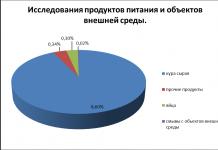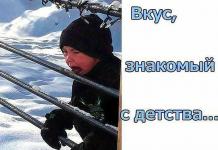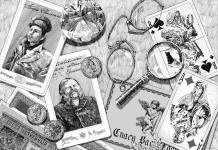Recently I came across an interesting blog article, later forgot about it, and the other day I found a piece from this blog on social networks. The girl wrote about medicine ... not about the one that contemporaries scold, but about the one that really saves. Why did I decide to write about this in this review? Because the blog is a real confirmation of the pages of the book.
We have learned to scold and criticize modern domestic medicine, which is justified in most cases, and no one is surprised anymore - when someone scolds a doctor or a nurse so loudly. It just so happened to me by fate that I often have to lie in clinics and other medical institutions lately, and I consider nurses already like family people.
Even if they make mistakes, and this happened to me more than once - I still forgive them in advance! They didn’t help me, but yesterday maybe five people were saved and they have this every day. In our working life we are accustomed to our professions ... and their profession is to save lives every day and more than one! From my own experience I know and saw how they do it! They are a little tired, some angry at fate, because not the Gods ... can not save everyone. When suddenly one day out of a hundred rescued people, a person dies by an absurd accident - it is his relatives who bring all the dogs to the doctor, and where are those relatives whom he helped?
It was this book that made me understand at one time and realize one medical error ..... Ugh ugh ugh ... in my lifetime I have come across mostly adequate (I don’t say kind and with a smile! I don’t need it, I rarely smile myself, I need their adequacy!) - and so there were mostly such. I hugged some of them as if I had known them for a hundred years, and I still come to many like a mother and send a lot of good things and kisses! There are such golden women among many doctors in the city of Ufa! And their fate ... is far from enviable ... sometimes you put a child to bed (when in the nursery, for example) you go out into the corridor, cry, meet them .. nurses, who are also quietly yearning for something, drink tea together, so much they have to see bitter destinies, that they probably absorb other people's troubles ... Then you will come to your senses and say, oh, I'm loading you with my sorrows .. tell me better about yourself? And here many have a kind of shock)) They are used to listening to a whole basket of bitterness and sorrow, but rarely who asks them themselves, but how are they?
Why am I describing in such detail, because Catherine just paints her thoughts about Russian medicine under Peter ... oh horror! YES we live better than kings now !!!
Poor future Tsarina Catherine the second with pleurisy was tormented by pain for two months at her 14 years old ... at the Court of Catherine the first ...
Do you know how the poor girl was treated? .... oh, don't ask.
So that's what I mean. Sometimes I hear in conversations, but at that time and even then they said they were better treated, did not hurt anything, did not suffer anything ...
They suffered and died in the field during childbirth, they did not have time to sew up or gave birth, they had time, but a month later the woman was dying from infections anyway ... after all, after giving birth she went to carry water ... And they died of tumors from cancer and all kinds of infections. ...
And from cancer they died from consumption, and from everything that can be done in many villages from an infection that they did not know about, they simply called a curse or pestilence ...
They just haven't been diagnosed!
Don't believe me? You need this book, inexpensive, I recently bought it, I already have the second book of her memoirs. And I bought this one, sometimes I sit in a cafe "close" with this book, kill time and read. I love one cafe, they brew delicious green tea there, and if I have time for half an hour I sit and rest, I come to myself drinking green tea instead of lunch and read Memoirs of Great Men. One of them - the most - is in front of you!
For me personally, books like this help me to come to my senses, like "I have something, but there is generally something ... oooo"
I no longer remember where I read the mention of the memoirs of Catherine II as a literary work, but set out to find it. It turned out that this unusual work is in the public domain, and I immediately downloaded it.
In general, to say that I am surprised is to say nothing.
Impressions are just mass!
"Memoirs" consists of three parts. The first is a kind of diary, i.e. true memoirs, telling in the first name about the life of Catherine from the time of her arrival in Russia to her enthronement.
The second part is a kind of "message from the President" - the Commission's order on drawing up a draft of a new code. In it, Ekaterina outlined draft new Russian laws point by point.
The third part consists of letters from Catherine to Voltaire, Potemkin, Poniatovsky and Saltykov.
In general, I am so delighted with what I have read that I would like to quote and quote ...
But I'll just write my impressions.
Well, first of all, I just can't believe that this is still not a literary work, but written by Catherine herself. It’s very neat, very interesting and lively.
I tried to find the history of the "memoirs" on the Internet, until I clarified anything for myself. By the way, there is a wonderful connoisseur igell
! Lyova, do you know anything about these memoirs ??? Did Catherine really write this?
Secondly, this is an absolutely amazing work of a lively, real, intelligent and educated woman who really looks at herself, those around her, has a sparkling sense of humor and a strategically developed mind. Catherine appears before us as a living person with her psychological problems, everyday difficulties, addictions and dreams. At the same time, she turns out to be a firm and confident leader who harbors no illusions about her place in society, her role in Russia and in the world, as well as her tasks. This is really an "iron lady" who is not inclined to unnecessary sentimentality, understands the true role of the monarch for the country to which fate has brought her, and tries in every possible way to correspond to this role. Her insight and high political qualities are simply amazing.
Thirdly, I, of course, could not help but be "hooked" by various everyday and human details of the "Memoirs", such as: the relationship between various courtiers, the living conditions of the tsarina and the grand duke and princess (i.e. Peter and Catherine), close to court of nobles, features of court etiquette and daily routine, the unusual character of Empress Elizabeth ... and many more amazing mini-sketches from life at the Russian court in the 18th century.
Fourthly, I was amazed at the "Order" - Catherine's brief recommendations for writing new Russian laws. 90% are completely modern and quite relevant today. Understanding of many aspects of life and reasonable reasoning about what exactly this or that law should be directed to. Attention to the most diverse aspects of social life. Some paragraphs are written very simply and even naively in our opinion, but at the same time they are completely modern in our time. I did not think at all that the kings did this ...
Fifth, of course, the letters struck. Not only the liveliness of the language, sharp sarcasm and observation, a modern sense of humor and humanity. I was struck by how closely a single woman was following the whole life of a huge country. I was amazed at how delicately she feels about foreign policy. I was infinitely struck by the fact that the situation in the card game "Russia vs Europe" is completely identical to the modern one, for example, even the story of Crimea is practically repeating itself. Only the States were then preoccupied with their own problems. Well, the fact that in the service in Russia there are entirely foreign military leaders in our time would be strange.
And in general, it is very informative for those who know history only from the school curriculum.
Perhaps I can’t resist and will still make a post with quotes, this reading was so unusual and interesting.
Of course, after reading the Memoirs, one gets the impression of Catherine as a truly wise ruler, however, of course, it cannot be only positive. Now I really wanted to read more about Catherine II herself and about what happened in Russia during her reign. I've never, never been interested in the history of Russia after Peter 1, but now I can't help but study.
Updt: here are the excerpts that interest me
Current page: 1 (the book has 7 pages in total) [available passage for reading: 2 pages]
Memoirs of Empress Catherine II
Part I

Happiness is not as blind as people imagine it to be. Often it is the result of a long series of measures, correct and accurate, not noticed by the crowd and preceding the event. And in particular, the happiness of individuals is a consequence of their qualities, character and personal behavior. To make it more tangible, I will construct the following syllogism:
quality and character will be a big premise;
behavior - less;
happiness or unhappiness is the conclusion.
Here are two striking examples:
Catherine II,
* * *
The mother of Peter III, the daughter of Peter I, died about two months after she gave birth to him, from consumption, in the small town of Kiel, in Holstein, with grief that she had to live there, and even in such an unsuccessful marriage. Karl Friedrich, Duke of Holstein, nephew of Charles XII, King of Sweden, father of Peter III, was a weak, unsightly, small, frail and poor prince (see Bergholz's Diary in Buching's Shop). He died in 1739 and left a son, who was about eleven years old, under the tutelage of his cousin Adolf-Friedrich, Bishop of Lubeck, Duke of Holstein, later King of Sweden, elected on the basis of preliminary peace clauses in Abo at the suggestion of Empress Elisabeth.
At the head of Peter III's tutors was chief marshal of his court Brummer, a Swede by birth; subordinate to him were the chief chamberlain Bergholz, the author of the above "Diary", and four chamberlains; two of them - Adlerfeldt, author of The History of Karl XII, and Wachtmeister were Swedes, and the other two, Wolf and Mardefeld, were Holsteins. This prince was brought up in view of the Swedish throne at a court too large for the country in which he was, and divided into several parties, burning with hatred; of these, each wanted to master the mind of the prince she was supposed to educate, and therefore instilled in him the repugnance that all parties mutually harbored towards their opponents. The young prince from the bottom of his heart hated Brummer, who instilled in him fear, and accused him of excessive severity. He despised Bergholz, who was a friend and pleaser of Brummer, and did not love any of his entourage, because they embarrassed him.
From the age of ten, Peter III discovered a propensity for drunkenness. He was forced into excessive representation and was not let out of sight, day or night. Whom he loved most in childhood and in the first years of his stay in Russia were two old valets: one - Kramer, a Livonian, the other - Rumberg, a Swede. The latter was especially dear to him. He was a rather rude and tough man, one of the dragoons of Charles XII. Brummer, and therefore Bergholz, who looked at everything only through the eyes of Brummer, were loyal to the prince, guardian and ruler; everyone else was displeased with this prince and even more with his entourage. Having ascended the Russian throne, Empress Elizabeth sent Chamberlain Korf to Holstein to summon her nephew, whom the prince-ruler sent immediately, accompanied by Chief Marshal Brummer, Chief Chamberlain Bergholz and Chamberlain Ducker, who was the first nephew.
Great was the empress's joy on the occasion of his arrival. A little later, she went to the coronation in Moscow. She decided to declare this prince her heir. But first of all he had to convert to the Orthodox faith. The enemies of the chief marshal Brummer, namely, the great chancellor Count Bestuzhev and the late Count Nikita Panin, who had been the Russian envoy to Sweden for a long time, claimed that they had in their hands convincing evidence that Brummer since he saw that the empress decided to declare his nephew, the supposed heir to the throne, made as much efforts to spoil the mind and heart of his pupil as he had previously cared to make him worthy of the Swedish crown. But I always doubted this vileness and thought that the upbringing of Peter III was unsuccessful due to unfortunate circumstances. I will convey what I saw and heard, and this will clarify a lot.
I saw Peter III for the first time, when he was eleven years old, in Eitin, with his guardian, the Prince-Bishop of Lubeck. A few months after the death of Duke Karl-Friedrich, his father, the Prince-Bishop gathered the whole family in Eitin in 1739 to introduce his pet into it. My grandmother, the mother of the prince-bishop, and my mother, the sister of the same prince, came there from Hamburg with me. I was then ten years old. There were also Prince Augustus and Princess Anne, brother and sister of the guardian prince and ruler of Holstein. It was then that I heard from this family gathered together that the young duke was inclined to drunkenness and that his entourage hardly prevented him from getting drunk at the table, that he was stubborn and quick-tempered, that he did not like those around him, and especially Brummer, which, however , he showed liveliness, but was weak and frail in build.
Indeed, his complexion was pale and he seemed thin and weak in build. The associates wanted to present this child as an adult, and for this purpose they embarrassed and held him in compulsion, which was supposed to instill in him falsehood, starting with the demeanor and ending with character.
As soon as the Holstein court arrived in Russia, it was followed by the Swedish embassy, which arrived to ask the empress for her nephew to inherit the Swedish throne. But Elizabeth, who had already announced her intentions, as mentioned above, in the preliminary articles of the peace in Abo, replied to the Swedish Diet that she declared her nephew the heir to the Russian throne and that she kept the preliminary articles of peace in Abo, which appointed Sweden as the supposed heir to the crown of the prince-ruler. Holstein. (This prince had a brother to whom Empress Elizabeth was engaged after the death of Peter I. This marriage did not take place because the prince died of smallpox a few weeks after the betrothal; Empress Elizabeth retained a very touching memory of him and gave proof of this to the entire family of this prince .)
So, Peter III was declared the heir of Elizabeth and the Russian Grand Duke, following the confession of his faith according to the rite of the Orthodox Church; Simeon of Theodorsky, who later became the Archbishop of Pskov, was given to him as a mentor. This prince was baptized and brought up according to the Lutheran rite, the most severe and least tolerant, since from childhood he was always unyielding to any edification.
I heard from his associates that in Kiel it was worth the greatest effort to send him to church on Sundays and holidays and encourage him to perform the rituals that were required of him, and that for the most part he showed unbelief. His Highness allowed himself to argue with Simeon of Theodore on every point; often his entourage was called to resolutely interrupt the battle and moderate the ardor that was brought into it; finally, with great bitterness, he submitted to what the empress and his aunt wanted, although he made it felt more than once - whether out of prejudice, out of habit, or out of a spirit of contradiction - that he would rather leave for Sweden than stay in Russia ... He kept Brummer, Bergholz and his Holstein associates with him until his marriage; to them were added, for the form, several teachers: one, Isaac Veselovsky, for the Russian language - he occasionally came to him at the beginning, and then did not go at all; the other, Professor Shtelin, who was supposed to teach him mathematics and history, but in fact played with him and almost served him as a jester. The most diligent teacher was Lange, the choreographer who taught him to dance.
In his inner chambers, the Grand Duke at that time was only engaged in organizing military exercises with a handful of people given to him for room services; he either gave them ranks and distinctions, then deprived them of everything, depending on how he liked. These were real childish games and constant childishness; in general, he was still very childish, although he was sixteen years old in 1744, when the Russian court was in Moscow. This year, Catherine II arrived with her mother on February 9 in Moscow. The Russian court was then divided into two large camps, or parties. At the head of the first, which began to rise after its decline, was the Vice-Chancellor, Count Bestuzhev-Ryumin; they feared him incomparably more than they loved him; he was an extraordinary rogue, suspicious, firm and fearless, rather domineering in his convictions, an implacable enemy, but a friend of his friends, whom he left only when they turned their backs on him, however, quarrelsome and often petty. He stood at the head of the College of Foreign Affairs; in the struggle with the empress's entourage, he, before the trip to Moscow, suffered a loss, but began to recover; he adhered to the Viennese court, Saxon and England. The arrival of Catherine II and her mother did not give him pleasure. It was a secret affair of a party hostile to him; Count Bestuzhev's enemies were in large numbers, but he made them all tremble. He had the advantage of his position and character over them, which gave him a significant advantage over the politicians in the front.
The party hostile to Bestuzhev held on to France, Sweden, which enjoyed its patronage, and the King of Prussia; the Marquis de la Chetardie was her soul, and the court, which came from Holstein, was matadors; they attracted Count Lestock, one of the main agents of the coup, who elevated the late Empress Elizabeth to the Russian throne. This latter enjoyed great confidence in her; he was her surgeon since the death of Catherine I, with whom he was, and provided mother and daughter with essential services; he had no lack of intelligence, or tricks, or sneakiness, but he was angry and black and nasty at heart. All these foreigners supported each other and put forward Count Mikhail Vorontsov, who also took part in the coup and accompanied Elizabeth on the night she ascended the throne. She forced him to marry the niece of Empress Catherine I, Countess Anna Karlovna Skavronskaya, who was raised with Empress Elizabeth and was very attached to her.
Count Alexander Rumyantsev, the father of the field marshal, who signed a peace treaty with the Swedes in Abo, about which they did not really consult with Bestuzhev, also joined this party. They also counted on the Prosecutor General Prince Trubetskoy, on the whole Trubetskoy family and, consequently, on the Prince of Hesse-Homburg, who was married to the princess of this house. This prince of Hesse-Homburg, who was then highly respected, was nothing in himself, and his importance depended on the numerous relatives of his wife, whose father and mother were still alive; this latter was very heavy. The rest of the empress's entourage were then the Shuvalov family, who hesitated at every step, the Chief Jaegermeister Razumovsky, who at that time was a recognized favorite, and one bishop. Count Bestuzhev knew how to benefit from them, but his main support was Baron Cherkasov, secretary of the Empress's Cabinet, who had previously served in the Cabinet of Peter I. He was a rude and stubborn man who demanded order and justice and observance of rules in every matter.
The rest of the courtiers stood on one side or the other, depending on their interests and everyday views. The Grand Duke seemed delighted at the arrival of my mother and mine.

Catherine II at the age of 16
I was in my fifteenth year; for the first ten days he was very busy with me; immediately and during this short period of time, I saw and understood that he did not really appreciate the people over which he was destined to reign, that he adhered to Lutheranism, did not like his entourage and was very childish. I was silent and listened, which earned his trust; I remember he told me, by the way, that what he liked most about me was that I was his second cousin, and that as a relative he could talk to me to his liking, after which he said that he was in love with one of the Empress's maids of honor, who was then removed from the court due to the misfortune of her mother, a certain Lopukhina, exiled to Siberia; that he would like to marry her, but that he resigns himself to the necessity of marrying me, because his aunt so desires.
I listened, blushing, to these kindred conversations, thanks to his early trust, but in the depths of my soul I looked with amazement at his foolishness and lack of judgment about many things.
On the tenth day after my arrival in Moscow, one Saturday the Empress left for the Trinity Monastery. The Grand Duke stayed with us in Moscow. I have already been given three teachers: one, Simeon Theodorsky, to instruct me in the Orthodox faith; another, Vasily Adadurov, for the Russian language, and Lange, a choreographer, for dancing. To make faster progress in Russian, I got out of bed at night and, while everyone was asleep, memorized the notebooks that Adadurov left me; since my room was warm and I was not at all accustomed to the climate, I did not put on my shoes - as I got out of bed, I studied.
On the thirteenth day, I grabbed pleurisy, from which I almost died. It opened with a chill, which I felt on Tuesday after the Empress left for the Trinity Monastery: the minute I dressed to go to dinner with my mother at the Grand Duke's, I hardly received permission from my mother to go to bed. When she returned from lunch, she found me almost unconscious, in extreme heat and with unbearable pain in my side. She imagined that I would have smallpox: she sent for doctors and wanted them to treat me accordingly; they argued that I needed to bleed; the mother never wanted to agree to this; she said that doctors let her brother in Russia die of smallpox by bleeding him, and that she did not want the same thing to happen to me.
The doctors and associates of the Grand Duke, who did not yet have smallpox, were sent to accurately report to the empress on the state of affairs, and I remained in bed, between my mother and the doctors, who were arguing among themselves. I was unconscious, in extreme heat and with pain in my side, which made me suffer terribly and utter moans for which my mother scolded me, wishing that I would patiently endure the pain.
Finally, on Saturday evening, at seven o'clock, that is, on the fifth day of my illness, the Empress returned from the Trinity Monastery and right after leaving the carriage entered my room and found me unconscious. She was followed by the Earl Lestock and the surgeon; After listening to the doctors' opinion, she sat down at the head of my bed and ordered me to bleed. The minute the blood gushed, I came to my senses and, opening my eyes, saw myself in the arms of the Empress, who was lifting me.
I stayed between life and death for twenty-seven days, during which I was bled sixteen times and sometimes four times a day. Mother was almost never allowed into my room anymore; she was still against these frequent bloodletting and spoke loudly that they would kill me; however, she was beginning to make sure that I would not have smallpox.
The Empress assigned Countess Rumyantseva and several other women to me, and it was clear that the mother’s judgment was not trusted. Finally, the abscess, which was in my right side, burst, thanks to the efforts of the Portuguese doctor Sanchets; I spat it out with vomiting, and from that moment I came to myself; I immediately noticed that my mother’s behavior during my illness damaged her in the opinion of everyone.
When she saw that I was very bad, she wanted a Lutheran priest to be invited to me; they say I was brought to my senses or took advantage of the moment when I came to myself to offer me this, and that I replied: “Why? Better send for Simeon Theodorsky, I will gladly talk to him. " They brought him to me, and in front of everyone he talked to me in such a way that everyone was happy. This greatly raised me in the opinion of the empress and the entire court.
Another very insignificant circumstance still hurt the mother. Around Easter, one morning, my mother took it into her head to send a message to me with the maid to give her the blue and silver fabric that my father’s brother gave me before my departure to Russia, because I really liked it. I told her to tell her that she was free to take it, but that, really, I love her very much, because my uncle gave it to me, seeing that I liked her. Those around me, seeing that I was giving the matter reluctantly, and in view of the fact that I had been lying in bed for so long, being between life and death, and that I felt better for only two days, began to talk among themselves that it was very unreasonable on the part of my mother cause the dying child the slightest displeasure and that instead of wanting to take this matter, she would have done better without mentioning it at all.
Let's go tell this to the Empress, who immediately sent me several pieces of rich and luxurious fabrics and, among other things, one blue and silver; this hurt the mother in the eyes of the empress: she was accused of having no tenderness for me at all, nor solicitude. I used to lie with my eyes closed during illness; they thought I was sleeping, and then Countess Rumyantseva and the women who were with me talked among themselves about what they had in their souls, and in this way I recognized a lot of things.
When I got better, the Grand Duke began to come to spend the evenings in his mother's room, which was also mine. He and everyone seemed to be watching my condition with the liveliest concern. The Empress often shed tears about this.
Finally, on April 21, 1744, on my birthday, when I turned fifteen, I was able to appear in society for the first time after this terrible illness. I think that they were not too pleased with my appearance: I lost weight like a skeleton, grew, but my face and features lengthened; my hair was falling and I was deadly pale. I myself found myself scary, like a scarecrow, and could not recognize myself. The Empress sent me a jar of blush that day and ordered me to blush.
With the onset of spring and good weather, the Grand Duke stopped visiting us every day; he preferred to walk and shoot in the vicinity of Moscow. Sometimes, however, he came to us for lunch or dinner, and then his childish frankness with me continued again, while his entourage talked with his mother, who had a lot of people and went all kinds of gossip that did not like those who were not in them. participated, and, by the way, to Count Bestuzhev, whose enemies all gathered with us; among them was the Marquis de la Chetardie, who had not yet used any of the powers of the French court, but had his credentials in his pocket.
In the month of May, the Empress again left for the Trinity Monastery, where the Grand Duke and my mother and I followed her. For some time now the Empress began to treat her mother very coldly; at the Trinity Monastery, the reason for this was found out. One afternoon, when the Grand Duke was in our room, the Empress came in suddenly and told her mother to follow her into another room. Count Lestok also entered there; the Grand Duke and I sat at the window, waiting.
This conversation went on for a very long time, and we saw Lestok leave; passing, he approached the Grand Duke and me - and we laughed - and said to us: "This noisy fun is over now"; then, turning to me, he said: "You just have to pack, you will immediately go to return to your home." The Grand Duke wanted to know how it is; he replied: "You will find out about this later," and went off to carry out the commission that was entrusted to him and which I do not know. He left the Grand Duke and me to reflect on what he had just told us; the first reasoned out loud, I - to myself. He said: "But if your mother is to blame, then you are not guilty," I answered him: "It is my duty to follow my mother and do what she orders."
I saw clearly that he would leave me without regret; As for me, in view of his mood, he was almost indifferent to me, but the Russian crown was not indifferent to me. Finally, the bedroom door opened, and the Empress went out with a very red face and with an air of anger, and her mother followed her with red eyes and in tears. Since we were in a hurry to go down from the window, which we climbed and which was quite high, the Empress smiled, and she kissed both of us and left.
When she came out, we found out approximately what was the matter. The Marquis de la Chetardie, who before, or, rather, on his first trip or mission to Russia, enjoyed great favor and confidence of the empress, on this second visit or mission he was greatly deceived in all his hopes. His conversations were more modest than letters; these latter were full of the most acrid bile; they were opened and the code was taken apart; they found details of his conversations with his mother and many other persons about contemporary affairs; conversations about the empress included expressions of little caution.
Count Bestuzhev did not fail to hand them over to the Empress, and since the Marquis de la Chetardie had not yet announced any of his powers, an order was given to expel him from the empire; the order of St. Andrew and the portrait of the empress were taken away from him, but they left all the other gifts made of diamonds that he had from this empress. I don't know if my mother managed to justify herself in the eyes of the empress, but, be that as it may, we did not leave; the mother, however, continued to be treated very coldly and with restraint. I don’t know what was said between her and de la Chetardie, but I know that one day he turned to me and congratulated me for having my hair done. en Moyse; I told him that for the sake of the Empress I would comb my hair in all the styles that she might like; when he heard my answer, he pirouette to the left, walked to the other side and did not address me again.
Returning with the Grand Duke to Moscow, my mother and I began to live more secluded; we had fewer people and they prepared me for the confession of faith. June 28 was appointed for this ceremony and the next day, Peter's day, for my betrothal to the Grand Duke. I remember that the Chief Marshal Brummer turned to me at this time several times, complaining about his pupil, and wanted to use me to correct and reason with his Grand Duke; but I told him that this was impossible for me and that by doing this I would only become as hateful to him as all his entourage were already hated.
At this time, the mother became very close to the Prince and Princess of Hesse and even more to the latter's brother, Chamberlain Betsky. This connection did not like Countess Rumyantseva, Chief Marshal Brummer and everyone else; while mother was with them in her room, the Grand Duke and I fiddled around in the hallway, and she was at our complete disposal; we both had no shortage of childish liveliness.
In the month of July, the empress celebrated peace with Sweden in Moscow, and on the occasion of this holiday she formed a court for me, as the betrothed Russian Grand Duchess, and immediately after this holiday the empress sent us to Kiev. She set off on her own a few days after us. We drove a little during the day: mother, me, Countess Rumyantseva and one of the maids of honor of the mother - in the same carriage; the Grand Duke, Brummer, Bergholz and Duker - in another. One afternoon the Grand Duke, who was bored with his teachers, wanted to go with his mother and with me; since he did this, he did not want to get out of our carriage any more. Then my mother, who was bored to travel with him and with me for whole days, decided to increase the company. She communicated her thought to the young people from our retinue, among whom were Prince Golitsyn, later Field Marshal, and Count Zakhar Chernyshev; took one of the carts with our beds; they fitted benches all around, and the next day mother, the Grand Duke and I, Prince Golitsyn, Count Chernyshev and one or two younger ladies from the retinue fit into it, and so we made the rest of the trip very merrily, how much concerned our carriage; but everything that did not have an entrance there rebelled against such an undertaking, which especially did not like Chief Marshal Brummer, Chief Chamberlain Bergholz, Countess Rumyantseva, mother's maid of honor and also the rest of the retinue, for they were never allowed there, and meanwhile how we laughed dear, they scolded and missed. With this state of affairs, we arrived three weeks later at Kozelets, where we waited for the Empress for another three weeks, whose journey was slowed down by the road due to some adventures. We learned in Kozelts that several of the Empress's retinue had been exiled from the road and that she was in a very bad mood.
Finally, in mid-August, she arrived at Kozelets; we still stayed there with her until the end of August. Here they played a large game of Pharaoh from morning to evening in the great hall, in the middle of the house; in the rest of the rooms, everyone was very crowded: my mother and I slept in the same common room, Countess Rumyantseva and the maid of honor of the mother - in the hall, and so on. One day the Grand Duke came to his mother's room and to mine as well, while his mother was writing, and next to her there was an open casket; he wanted to rummage in it out of curiosity; his mother told him not to touch, and he really began to jump around the room in the other side, but, jumping here and there to make me laugh, he touched the lid of the open box and dropped it; the mother then became angry, and they began to scold violently; his mother reproached him for overturning the box on purpose, and he complained of injustice, and both of them turned to me, demanding my confirmation; knowing my mother's temper, I was afraid of getting a slap in the face if I did not agree with her, and, not wanting to either lie or offend the Grand Duke, I was between two fires; nevertheless, I told my mother that I didn’t think the Grand Duke would do it on purpose, but that when he jumped, his dress brushed the lid of the box, which was on a very small stool.
Then my mother attacked me, for when she was angry, she needed to scold someone; I fell silent and cried; The Grand Duke, seeing that all my mother's anger fell on me because I testified in his favor, and since I was crying, began to accuse my mother of injustice and called her anger rage, and she told him that he was an ill-mannered boy ; in a word, it is difficult, without, however, bringing the quarrel to a fight, to go further in it than they both did. Since then, the Grand Duke took a dislike to his mother and could never forget this quarrel; his mother, too, could not forgive him; and their dealings with each other became constrained, without mutual trust, and easily turned into strained relations. Both of them did not hide from me; no matter how hard I tried to soften both of them, I succeeded only for a short time; both of them were always ready to throw a taunt in order to sting each other; my position became more delicate day by day.
I tried to obey one and please the other, and, indeed, the Grand Duke was more frank with me then than with anyone; he saw that my mother often jumped at me when she could not find fault with him. It did not harm me in his eyes, because he was convinced that he could be confident in me. Finally, on August 29, we arrived in Kiev. We stayed there for ten days, after which we went back to Moscow in exactly the same way as we went to Kiev.
When we arrived in Moscow, the whole autumn was spent in comedies, court balls and masquerades. Despite this, it was noticeable that the Empress was often very out of sorts. Once, when we - my mother, I and the Grand Duke - were in the theater in the box opposite the box of Her Imperial Majesty, I noticed that the Empress was talking to Count Lestock with great fervor and anger. When she finished, Lestok left her and came to our box; he came up to me and asked: "Did you notice how the Empress spoke to me?" I said yes. "Well," said Lestock, "she is very angry with you." - "On me! What for? " Was my answer. “Because you,” he answered me, “have a lot of debts; she says that this is a bottomless barrel and that when she was the Grand Duchess she did not have more content than you did, that she had to support the whole house and that she tried not to go into debt, for she knew that no one was for her will pay. " He told me all this with an angry and dry air, probably so that the Empress could see from her box how he was carrying out her order. Tears welled up in my eyes, and I said nothing. Having said everything, he left.
The Grand Duke, who was next to me and approximately heard this conversation, after asking me what he did not hear, made me understand by playing with his face more than by saying that he shares the thoughts of his aunt and that he is pleased that I was chosen. This was a fairly common reception for him, and in such cases he thought to please the empress, catching her mood when she was angry with someone. As for the mother, when she found out what the matter was, she said that it was the result of the efforts that were used to snatch me out of her hands, and that, since they put me in such a way that I could act without asking her, she washes her hands in this matter; so they both turned against me. I immediately decided to put my affairs in order and the next day I demanded an account. From them I saw that I owed seventeen thousand rubles; before leaving Moscow for Kiev, the empress sent me fifteen thousand rubles and a large chest of simple materials, but I had to dress richly.
As a result, it turned out that I owe only two thousand; it seemed to me what amount of money. Various reasons have introduced me to these costs. Firstly, I came to Russia with a very meager wardrobe. If I had three or four dresses, this was already the limit of what was possible, and this was at court, where the dresses were changed three times a day; a dozen shirts made up all my linen; I used my mother's sheets. Secondly, I was told that in Russia they love gifts and that generosity makes friends and becomes pleasant to everyone. Third, I was assigned the most wasteful woman in Russia, Countess Rumyantseva, who was always surrounded by merchants; every day she presented to me a lot of things that she advised to take from these merchants and which I often took only to give it to her, as she really wanted to. The Grand Duke also cost me a lot, because he was greedy for gifts; Mother's bad mood was also easily pacified by some thing that she liked, and since she was then very often angry, and especially at me, I did not neglect the way of pacification that I had discovered. The mother's bad mood was partly due to the fact that she did not at all enjoy the favor of the empress, who often insulted and humiliated her.
Moreover, the mother, whom I usually followed, looked with displeasure at the fact that I was now walking in front of her; I avoided it wherever I could, but in public it was impossible; in general, I made it a rule to show her the greatest respect and the greatest deference possible, but all this did not help me very much; she always and in any case burst out with displeasure at me, which did not serve her in her favor and did not dispose people to her. Countess Rumyantseva, with her stories and retellings and various gossips, greatly contributed, like many others, to lowering her mother in the opinion of the empress. The eight-seater carriage, during a trip to Kiev, also did its job: all the old people were expelled from it, all the young people were admitted. God knows what turn they have given to this routine, which, however, is very innocent; The most obvious thing was that it offended everyone who could be admitted there due to their position and who saw that they preferred those who were funnier.
Catherine II
Happiness is not as blind as people imagine it to be. Often it is the result of a long series of measures, correct and accurate, not noticed by the crowd and preceding the event. And in particular, the happiness of individuals is a consequence of their qualities, character and personal behavior. To make it more tangible, I will construct the following syllogism:
quality and character will be a big premise;
behavior - less;
happiness or unhappiness is the conclusion.
Here are two striking examples:
Catherine II,
Peter III's mother, the daughter of Peter I [i], died about two months after giving birth to him, from consumption, in the small town of Kiel, in Holstein, with grief that she had to live there, and even in such an unfortunate married. Karl Friedrich, Duke of Holstein, nephew of Charles XII, King of Sweden, father of Peter III, was a weak, unsightly, small, frail and poor prince (see Bergholz's Diary in Buching's Shop). He died in 1739 and left a son, who was about eleven years old, under the tutelage of his cousin Adolf-Friedrich, Bishop of Lubeck, Duke of Holstein, later King of Sweden, elected on the basis of preliminary peace clauses in Abo at the suggestion of Empress Elisabeth [v].
At the head of Peter III's tutors was chief marshal of his court Brummer, a Swede by birth; subordinate to him were the chief chamberlain Bergholz, the author of the above "Diary", and four chamberlains; two of them - Adlerfeldt, author of The History of Karl XII, and Wachtmeister were Swedes, and the other two, Wolf and Mardefeld, were Holsteins. This prince was brought up in view of the Swedish throne at a court too large for the country in which he was, and divided into several parties, burning with hatred; of these, each wanted to master the mind of the prince she was supposed to educate, and therefore instilled in him the repugnance that all parties mutually harbored towards their opponents. The young prince from the bottom of his heart hated Brummer, who instilled in him fear, and accused him of excessive severity. He despised Bergholz, who was a friend and pleaser of Brummer, and did not love any of his entourage, because they embarrassed him.
From the age of ten, Peter III discovered a propensity for drunkenness. He was forced into excessive representation and was not let out of sight, day or night. Whom he loved most in childhood and in the first years of his stay in Russia were two old valets: one - Kramer, a Livonian, the other - Rumberg, a Swede. The latter was especially dear to him. He was a rather rude and tough man, one of the dragoons of Charles XII. Brummer, and therefore Bergholz, who looked at everything only through the eyes of Brummer, were loyal to the prince, guardian and ruler; everyone else was displeased with this prince and even more with his entourage. Having ascended the Russian throne, Empress Elizabeth sent Chamberlain Korf to Holstein to summon her nephew, whom the prince-ruler sent immediately, accompanied by Chief Marshal Brummer, Chief Chamberlain Bergholz and Chamberlain Ducker, who was the first nephew.
Great was the empress's joy on the occasion of his arrival. A little later, she went to the coronation in Moscow. She decided to declare this prince her heir. But first of all he had to convert to the Orthodox faith. The enemies of the chief marshal Brummer, namely the great chancellor Count Bestuzhev [x] and the late Count Nikita Panin, who had been the Russian envoy to Sweden for a long time, claimed that they had in their hands convincing evidence that Brummer since he saw that the empress decided to declare her nephew the prospective heir to the throne, made as much efforts to spoil the mind and heart of her pupil as she had previously cared to make him worthy of the Swedish crown. But I always doubted this vileness and thought that the upbringing of Peter III was unsuccessful due to unfortunate circumstances. I will convey what I saw and heard, and this will clarify a lot.
I saw Peter III for the first time, when he was eleven years old, in Eitin, with his guardian, the Prince-Bishop of Lubeck. A few months after the death of Duke Karl-Friedrich, his father, the Prince-Bishop gathered the whole family in Eitin in 1739 to introduce his pet into it. My grandmother, the mother of the prince-bishop, and my mother, the sister of the same prince, came there from Hamburg with me. I was then ten years old. There were also Prince Augustus and Princess Anne, brother and sister of the guardian prince and ruler of Holstein. It was then that I heard from this family gathered together that the young duke was inclined to drunkenness and that his entourage hardly prevented him from getting drunk at the table, that he was stubborn and quick-tempered, that he did not like those around him, and especially Brummer, which, however , he showed liveliness, but was weak and frail in build.
Indeed, his complexion was pale and he seemed thin and weak in build. The associates wanted to present this child as an adult, and for this purpose they embarrassed and held him in compulsion, which was supposed to instill in him falsehood, starting with the demeanor and ending with character.
As soon as the Holstein court arrived in Russia, it was followed by the Swedish embassy, which arrived to ask the empress for her nephew to inherit the Swedish throne. But Elizabeth, who had already announced her intentions, as mentioned above, in the preliminary articles of the peace in Abo, replied to the Swedish Diet that she declared her nephew the heir to the Russian throne and that she kept the preliminary articles of peace in Abo, which appointed Sweden as the supposed heir to the crown of the prince-ruler. Holstein. (This prince had a brother to whom Empress Elizabeth was engaged after the death of Peter I. This marriage did not take place because the prince died of smallpox a few weeks after the betrothal; Empress Elizabeth retained a very touching memory of him and gave proof of this to the entire family of this prince .)
So, Peter III was declared the heir of Elizabeth and the Russian Grand Duke, following the confession of his faith according to the rite of the Orthodox Church; Simeon of Theodorsky, who later became the Archbishop of Pskov, was given to him as a mentor. This prince was baptized and brought up according to the Lutheran rite, the most severe and least tolerant, since from childhood he was always unyielding to any edification.



































